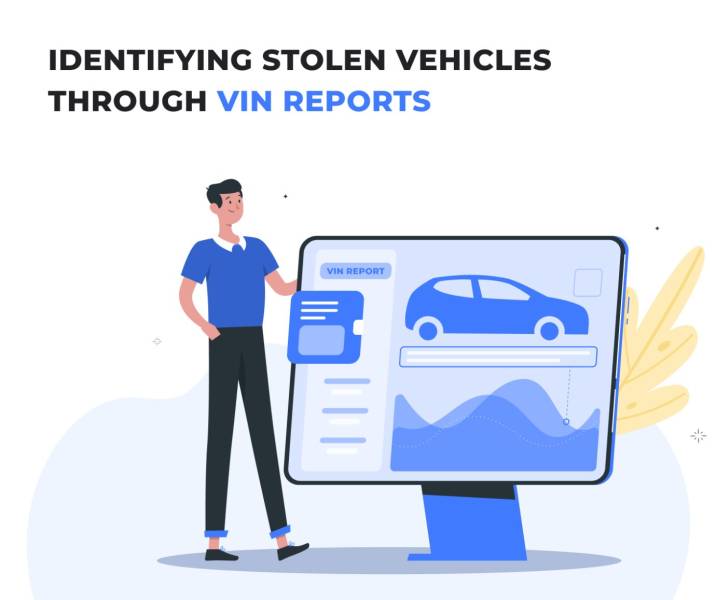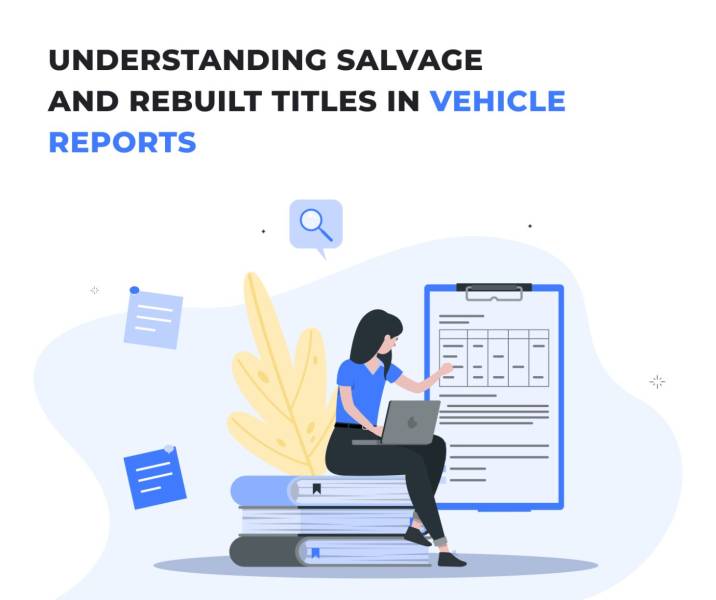Buying a used car can be risky without the right tools. One of the most effective ways to avoid trouble is by checking the car’s history. With stat vin, you can use a vehicle history report to uncover theft records, suspicious ownership changes, and other red flags. This article explains how to detect stolen vehicles using VIN reports, how to spot potential fraud, and how to make safer car-buying decisions.
Why a Vehicle History Report Is Essential in Used Car Fraud Prevention
A vehicle history report is your first line of defense against used car fraud. It includes vital data such as previous ownership, title records, mileage, and accident history. More importantly, it can reveal if a car has been reported stolen or recovered, even if the seller does not disclose this.
These reports are pulled from multiple databases, including law enforcement and insurance records. When you perform a VIN check, you may find a title marked “stolen” or signs of suspicious activity like frequent ownership changes across states, which can signal an attempt to cover up a theft.
For anyone buying a used vehicle, using services like stat vin ensures you’re not unknowingly purchasing stolen property. It’s a quick step that can save you legal and financial headaches down the road.
How VIN Check Helps Spot Hidden Damages and Irregularities
A VIN check doesn’t just uncover theft—it also highlights hidden damages in vehicles. Stolen cars are often involved in illegal activities and may be hastily repaired to mask signs of damage. A car report by VIN reveals inconsistencies such as missing service records, sudden mileage changes, or entries showing major structural repairs.
This is where vin stat becomes valuable. Its detailed insights help identify whether a car has been through unreported accidents or illegal modifications. These factors not only affect the car’s value but may also compromise safety.
Before signing any contract, make sure the used car history matches the seller’s claims. If the report and the seller’s story don’t align, that’s a red flag worth investigating.
Detecting Mileage Rollback with Car History Lookup Tools
Mileage rollback detection is another powerful feature of a car history lookup. Stolen cars may have their odometers tampered with to appear newer and more valuable. This type of fraud is common in the used car market and can mislead buyers into overpaying for a vehicle with significant wear and tear.
With a VIN check, you can verify recorded mileage over time. Discrepancies in odometer readings, especially during title transfers or service visits, can indicate tampering. Vehicle history reports often include timestamps and locations where mileage was logged, helping you trace the truth.
Buying from private sellers without this check puts you at greater risk. A complete stat vin report can uncover such tactics before it’s too late.
Understanding Salvage and Rebuilt Titles in Vehicle Reports
When analyzing a vehicle history report, one of the most telling signs of potential problems is the presence of salvage or rebuilt titles. These titles indicate that a car has been declared a total loss by an insurance company—often due to theft, severe accident damage, or flooding—and later restored to a roadworthy condition.
In the case of stolen vehicles, some may be recovered and resold with a rebuilt title, masking their troubled past. A VIN check through a reliable platform like stat vin reveals these title statuses, giving you insight into the vehicle’s true condition and history.
Even if a car looks fine externally, a salvage title should trigger caution. Such cars may have structural weaknesses, electrical issues, or other latent damage. Always factor in these risks before making a purchase decision.
Cross-Referencing VIN Data with Law Enforcement and Insurance Databases
One of the most effective ways to confirm whether a car is stolen is by cross-referencing the VIN with official databases. A comprehensive VIN check service like stat vin pulls data from national and international sources, including police and insurance agencies.
If a vehicle has been reported as stolen but never recovered, this information is usually flagged in the report. Additionally, law enforcement may enter the VIN into theft databases that are publicly accessible through authorized platforms. By running a car history lookup, you can spot vehicles still under investigation or search.
This layer of verification is critical when buying from private sellers or auction sites. Without it, you risk unknowingly purchasing stolen property, which could later be confiscated by authorities.
What a VIN Check Can’t Tell You—and Why a Physical Inspection Still Matters
While a VIN check is a powerful tool, it isn’t foolproof. There are instances where stolen vehicles are given cloned or altered VINs from legitimate cars. In such cases, a report may appear clean while the car remains stolen.
This is why pairing a vehicle history report with a professional inspection is vital. Look for signs of tampering on the VIN plate, such as mismatched fonts, crooked labels, or scratched dashboards. Also, ensure that the VIN on the dashboard matches those found on the door jamb and other areas.
Even the best stat vin report can’t replace due diligence in the real world. Consider bringing a mechanic or using services that verify VIN plate authenticity before committing to the purchase.
Red Flags in Vehicle History That May Indicate Theft
Several patterns in a used car history can point to potential theft. A thorough VIN check helps surface these red flags:
- Unusually short ownership durations
- Title issued in one state, followed by registration in another shortly after
- Missing service history or frequent gaps
- Discrepancies in vehicle use (e.g., private to commercial)
Thieves often shuffle titles and change locations to “clean” a car’s past. If these inconsistencies appear in a car report by VIN, it’s worth digging deeper. Services like stat vin offer detailed timelines and state-to-state movement logs, helping you reconstruct the vehicle’s true story.
Don’t rely solely on a seller’s word. Use the objective facts in the report to guide your buying decision.
How to Perform a Safe Used Car Purchase with VIN Tools
To minimize risk and ensure you’re not buying a stolen vehicle, follow this process:
- Request the full VIN from the seller.
- Run a VIN check through a trusted provider like stat vin.
- Analyze the vehicle history report for inconsistencies, salvage titles, or theft indicators.
- Schedule a physical inspection to verify VIN placement and condition.
- Cross-check the car’s background with law enforcement databases if possible.
Incorporating VIN tools into your purchase process is not just smart—it’s essential. The small investment in a car history lookup can prevent thousands in losses and potential legal issues.
The Role of VIN Reports in Preventing Stolen Vehicle Resales at Auctions
Car auctions, both online and in-person, can be hotspots for reselling stolen or problematic vehicles. Many stolen cars are given fake titles or altered VINs before ending up in these marketplaces. Fortunately, a VIN report can help protect buyers from these traps.
Services like stat vin scan auction records, salvage databases, and VIN inconsistencies that suggest fraud. If a car has been bought and sold repeatedly in short timeframes, or if it was listed at multiple auctions in different states, that’s a red flag.
Auction buyers should never skip the VIN check process. It’s one of the few safeguards in place when buying in such fast-paced environments.
Conclusion: VIN Checks as a First Line of Defense Against Stolen Cars
Detecting a stolen vehicle before purchase is not just about avoiding financial loss—it’s also about staying on the right side of the law. A simple VIN check through stat vin can expose theft records, title fraud, mileage rollback, and hidden damages long before they become your problem.
Combining a detailed vehicle history report with physical inspection and official database checks gives you a comprehensive view of any used car’s past. In a market full of risks, informed decisions are your best protection.

Peyman Khosravani is a global blockchain and digital transformation expert with a passion for marketing, futuristic ideas, analytics insights, startup businesses, and effective communications. He has extensive experience in blockchain and DeFi projects and is committed to using technology to bring justice and fairness to society and promote freedom. Peyman has worked with international organizations to improve digital transformation strategies and data-gathering strategies that help identify customer touchpoints and sources of data that tell the story of what is happening. With his expertise in blockchain, digital transformation, marketing, analytics insights, startup businesses, and effective communications, Peyman is dedicated to helping businesses succeed in the digital age. He believes that technology can be used as a tool for positive change in the world.










